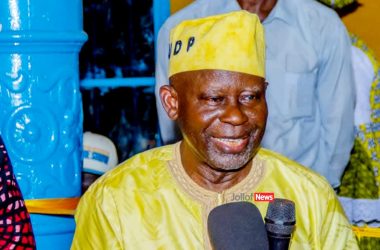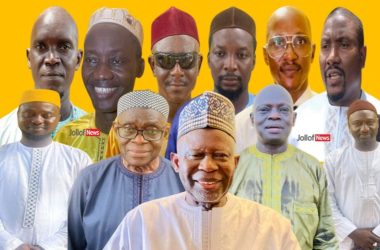 (JollofNews) – The information you gathered from the press release issued by an organisation called the Committee for the Restoration of Democracy in the Gambia (CORDEG), which had restricted circulation in the online papers and PDOIS’ response, has not captured the letter and spirit of the meeting of the opposition aimed at formulating proposals for electoral reform.
(JollofNews) – The information you gathered from the press release issued by an organisation called the Committee for the Restoration of Democracy in the Gambia (CORDEG), which had restricted circulation in the online papers and PDOIS’ response, has not captured the letter and spirit of the meeting of the opposition aimed at formulating proposals for electoral reform.
Electoral reform is in the interest of all political parties and the public at large since the aim is to hold free, fair and genuine elections in the Gambia, which are deemed credible by all observers. Hence no opposition party could withhold signature to a document which is prepared in common by all to promote electoral reform.
The People’s Democratic Organisation for Independence and Socialism (PDOIS) is in fact playing an instrumental role in the negotiation for electoral reform and no one who understands how those proposals are being prepared would imply that PDOIS is holding out or could be sidelined. The contradiction between the participants is about confidentiality and not about content of the reform proposals. Needless to say, the discussions are characterised by maturity and mutual respect as befit those who aim to lead a nation. It is also important to point out that the negotiation is about electoral reform and not about forming a coalition. Hence there is no room for controversy or failure in reaching an agreement.
At the moment there is no discussion about a coalition because the time for that has not arrived. Organised political parties do not form coalitions by word of mouth. All agreements between political parties must be put in writing and are signed by authorised signatories. Even the setting up of an interparty committee was premised on a memorandum of understanding signed by all parties.
Hence, at this moment what is expected of credible opposition parties is to hold party congress and formulate policies on when alliances would be necessary and which form of alliances would be acceptable to each party.
PDOIS is the only party which has formulated proposals on how a united front could be built which is to be submitted to a congress so that it could form part of the PDOIS manifesto for the 2016-2018 electoral cycle.
We have already proposed in Agenda 2016 that all parties should pursue electoral reform so that the second round of voting would be restored. In order to ensure that the incumbent is deprived of more than 50 per cent majority, we propose that all parties should go on the
ground to extend their political influence so that they could share among themselves more than 50 per cent of the votes on the ground.
In this way, the opposition candidate who would have had the largest number of votes to go for the second round would get the support of all the other opposition parties. This is PDOIS’ first proposal.
Secondly, we have left room for the possibility of not having the electoral reform desired. In that case the whole world would be convinced that the incumbent is afraid to submit his mandate to the rigors of genuine elections. In that case, PDOIS proposes for the opposition to meet and select one credible candidate to run a transitional government if elected with the support of all.
To ensure that a credible candidate is selected, PDOIS proposes that the political parties should select their candidates and expose them to the electorate and when it becomes necessary to form a united front the party candidates as well as the independent candidates could join a caravan to tour the country before any negotiation so that the public appeal of each candidate could be assessed.
To conclude, we hope the general public would form opinions on political parties and personalities based on their policies and actions and not on the allegations made by those who wish to cover unpleasant facts with distortions to try to isolate those who do not fit in their scheme of things.
Halifa Sallah is a leading member of the Gambia’s opposition People’s Democratic Organisation for Independence and Socialism (PDOIS) party. He was the leader of the opposition in the National Assembly of the Gambia and a member of the Pan-African Parliament.




